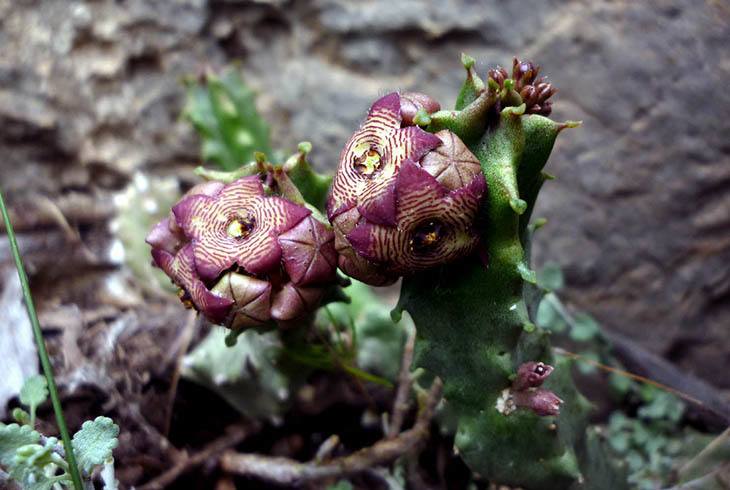Nature’s Best Weight Loss Star!
There’s a new natural weight loss star gracing the proverbial red carpet these days, and this one has the scientific community buzzing. Why? Because it conquers not one, not two, but THREE of the major weight loss barriers that overweight people face.
Caralluma fimbriata is an herb grown in India that has some unique properties when it comes to weight loss. Hunters have used this herb for centuries as an appetite suppressant during long hunts in sparsely vegetated regions. I’m sure that gives you a clue as to one of the major weight loss barriers that this miracle herb tackles.
Conquers Appetite
According to Dr. Nicholas Perricone, Caralluma Fimbriata controls appetite due to its ability to fool the brain into thinking we’ve had enough to eat. A feeling of fullness is signaled to your body after you have “filled” your stomach. (Remember the adage that it takes 20 minutes for the brain to catch up to you stomach, which is why we should eat slowly.) A compound in Caralluma fimbriata triggers this signal before your stomach is full, thereby suppressing appetite.
Conquering appetite is key when trying to lose weight. Eating too much is obviously a major cause of weight gain. After years or even months of overeating, your body becomes accustomed to a certain satiety level, meaning, you have reprogrammed your body into feeling full on more food than necessary.
Emotional eating is another aspect of overeating. When food offers you comfort during difficult times, you may be fooled into thinking you are hungry when in all reality, your body doesn’t really require food. Your psychological state can very easily dictate what your physiological response will be in your body. Having an appetite suppressant on board may be just the trick to over-ride your emotional craving to eat.
Blocks Fat Storage
Another major obstacle to weight loss is your body’s tendency to store fat. The function in the body used to generate energy at the cellular level is called the Kreb’s cycle. Little organisms called mitochondria utilize compounds generated from the foods you eat to produce ATP (Adenosine Triphosphate), which then goes on to produce energy for your body to function. If the body uses the energy produced, all is good. If not, it is converted to fat.
Caralluma fimbriata seems to block the production of Citrate Lyase, which is a vital component to the production of acetyl coenzyme A, which is necessary for the conversion of energy to fat (that is stored in our tummies, hips, thighs… etc.!).
Helps Build Muscle
Better yet, Caralluma fimbriata not only blocks the formation of fat, it helps increase lean body mass or muscle. When less excess energy is converted to fat, your muscles have more available energy. Keep in mind, this is only going to work if you are forcing those muscles through exercise to need that energy; however, the good news is that your muscles will be worked more efficiently and thus, your time spent in the gym to get the same results will be less!
Likely, the very best news about Mother Nature’s triple threat, Caralluma fimbriata, is that it comes without any known side effects. Many pharmaceutical weight loss pills can tackle one or more of the above weight loss issues, but they tend to carry heavy risk. Stimulants used to suppress appetite have also been known to cause cardiac problems and even death in some cases. Fat burners and blockers tend to cause gastrointestinal problems such as diarrhea, gas and bloating.
Caralluma fimbriata is safe, natural and effective. That’s why it’s one of the primary ingredients in Ultimate Trim – The Feel Good Fat Burner!


Great! Eating healthy and making changes to your lifestyle does not mean you have to go to the extremes.
Living a healthy lifestyle is not as hard as people think…get the knowledge by reading this article.
Looking forward on it.